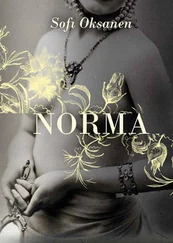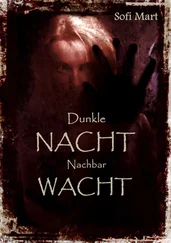seven million years
we saw the apple trees bloom
Free Estonia!
I have Ingel’s cup here. I would have liked to have her pillow, too, but Liide wouldn’t give it to me. She made herself at home again; she’s trying to do her hair the same as Ingel’s. Maybe she’s just trying to cheer me up, but it looks ugly. But I can’t bad-mouth her, because she brings me food and everything. And if I get her mad, she won’t let me out of here. She doesn’t show her anger; she just won’t let me out or bring me any food. I went hungry for two days the last time. It was probably because I asked for Ingel’s nightgown. No more bread.
When she lets me out, I try to please her, chat pleasantly and make her laugh a little, praise her cooking-she likes that. Last week she made me a six-egg cake. I didn’t ask how she came by that many eggs, but she wanted to know if the cake wasn’t better than the ones Ingel makes. I didn’t answer. Now I’m trying to think of something nice to say. I sleep with my Walther and my knife beside me in here. I wonder what’s keeping England?
Hans Pekk, son of Eerik, Estonian peasant
Läänemaa, Estonia
Aliide Eats a Five-Petaled Lilac and Falls in Love
On Sundays after church Aliide and Ingel had a habit of walking to the graveyard to meet their friends and watch the boys, flirting as much as the bounds of decency permitted. In church they always sat near the grave of Princess Augusta of Koluvere, twirling their ankles and waiting to get out and display themselves at the graveyard, to show off their ankles, stylishly and expensively covered in black silk stockings, to step out prettily, looking their best, beautiful and ready to give eligible suitors the eye. Ingel had braided her hair and wrapped it in a crown on top of her head. Aliide had left her braids down on her neck, because she was younger. That morning she had talked about cutting her hair. She had seen such charmant electric permanent waves on the city girls-you could get one for two krooni-but Ingel had been horrified and said that she shouldn’t say anything about it where mother could hear.
The morning was especially gentle for some reason, and the lilacs especially intoxicating. Aliide had begun to feel like an adult, and as she pinched her cheeks in front of the mirror, she was quite sure that something wonderful would happen to her this summer-why else would she have found a lilac with five petals? That had to portend something, especially since she had dutifully eaten the flower.
When the congregation finally came murmuring out of the church, the girls could go on their walk under the spruce trees in the graveyard, ferns brushing against their legs, squirrels running along the limbs, the well creaking now and then. Farther off, crows were croaking; what did they foretell about suitors? Ingel hummed, “ vaak vaak kellest kahest paar saab ”-caw, caw, crow above, which of us will fall in love-the future shone down from the sky and life was good. The anticipation of years to come burned in their breasts, as it generally does for young girls.
The two sisters had just made one full circuit of the graveyard, sometimes whispering with each other and sometimes stopping to chat with friends, when Aliide’s silk dress got stuck on a curl of the iron fence surrounding a grave, and she bent over to pull it loose. That was when she saw a man near the German graves, next to the stone wall, saw the pussy willows, the sunshine and the mossy wall, the bright light, his bright laugh. He was laughing with someone; he bent over to tie his shoes and kept talking, turned his face toward his friends as he tied his shoelace and stood up as smoothly as he had bent down. Aliide forgot her dress and stood up before she had gotten her hem loose. The sound of tearing silk awakened her, and she pulled the fabric free, brushing the bits of rust off her hands. Thank goodness it was a small tear. Maybe no one would notice it. Maybe he wouldn’t notice. Aliide smoothed her hair with numb hands. Look. Aliide bit her lips to redden them. They could easily turn back, go past the stone wall. Look over here.
Look at me. The man ended his conversation and turned toward them. He turned toward them, and at that same moment Ingel turned to see what was keeping her sister, and just then the sun struck the crown of hair on her head and- No, no! Look at me!- Ingel straightened her neck the way she often did and when she did that she resembled a swan; she lifted her chin, and they saw each other, Ingel and the man. Aliide knew at once that he would never see her when she saw how he stopped speaking, how the pack of cigarettes he had taken out of his pocket stopped in midmotion, how he stopped in the middle of a word and stared at Ingel and how the top of the cigarette pack flashed like a knife in his hand. Ingel moved closer to Aliide, her gaze focused on him, the skin over her collarbone shining, an invitation rising up from the pit at the base of her throat. Without glancing at Aliide, she grabbed her hand and pulled her toward the stone wall where the man was standing motionless, and now even his friend had noticed that he wasn’t listening, that the hand that held the cigarettes was stopped high up, where his ribs began, and now his friend saw Ingel, pulling Aliide behind her, although Aliide resisted at every step, holding on to headstones, roots, whatever she could find. The heel of her shoe dug into the dirt again and again, but the earth betrayed her, the roots betrayed her, the spruce trees gave way, the grass slid under her, the stones rolled away under her feet, and a horsefly flew into her mouth, and she couldn’t cough it out because Ingel didn’t want to stop, they had to keep going, Ingel pulled and pulled and the path was clear and led straight to the stone wall, and Aliide saw the man’s blank expression, outside of time and space, and felt Ingel’s fevered steps and the tight grip on her fingers. Ingel’s pulse was pounding against Aliide’s hand as all of her familiar expressions flowed over her face and she left them behind and they slapped Aliide in the face in wet, salty tatters and stuck to her cheeks, some of them flying past like ghosts, already gone, and the dimple in her cheek as she laughed with Aliide that morning burst forth as it flew away. When they got to the wall, Aliide’s sister had become a stranger, a new Ingel who would no longer tell her secrets only to Aliide, who would no longer go to the park to drink seltzer with Aliide; she would be going with someone else. A new Ingel who had someone else, someone to hear her thoughts and laughter and all the things that Aliide would have wanted to hear. Someone with skin she wanted to smell, with body heat that she wanted to mix with her own. Someone who should have looked at Aliide, seen her, and frozen when he saw her; it should have been for her that his hand with the silver cigarette packet stopped in the air. But it had been Ingel who was cut away by the flash of that bright knife, cut out of Aliide’s life.
Aino, the neighbor, ran to where they were. She knew the man’s friend and introduced Ingel to them. The willow rustled. The man didn’t even look at Aliide to say hello. The three lions of Estonia on the cigarette pack were splashed with sunlight, laughing.
***
Ingel again. Always Ingel. Ingel always got everything she wanted, and she always would, because God never stopped mocking Aliide. It wasn’t enough that Ingel always remembered the little tricks that Mother taught her, washed the dishes in potato water to make them shine. It wasn’t enough that Ingel didn’t forget what she was told like Aliide, whose dishes were always still greasy after she washed them. No, Ingel knew how to do everything without even being taught. From the first time she milked the cows, Ingel’s bucket was filled to the rim with white froth, and Ingel’s footsteps in the field made the grain grow better than anyone else’s. But even that wasn’t enough. No, Ingel had to get a man, too, the man that Aliide had seen first. The only man that Aliide had ever wanted.
Читать дальше












